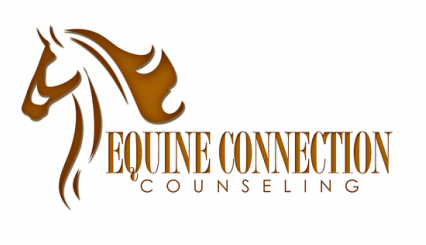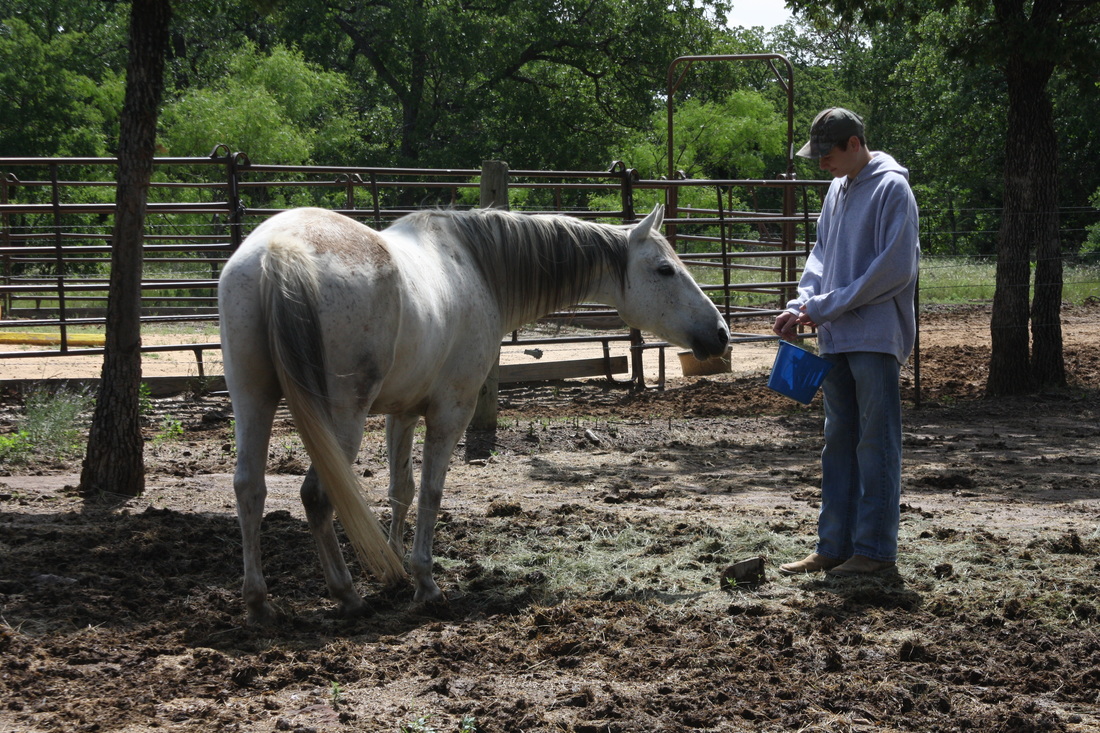Equine-Assisted Therapy (EAT): A broad term referring to services provided by a licensed health professional that incorporates horses into the therapy process. Practitioners are often required to have a graduate degree and are regulated by a state board. Examples of EAT include equine assisted counseling/psychotherapy and hippotherapy.
Equine-Assisted Activity (EAA): Refers to services provided by a non-licensed professional that utilizes the inherent therapeutic benefits of being around horses to enhance non-clinical activities. Facilitators are not regulated by a state board and are not required to have a degree in their field. Examples include therapeutic horseback riding, therapeutic vaulting, and therapeutic driving. Equine assisted learning is also considered to be an EAA.
Equine Assisted Counseling (EAC) or Equine Facilitated Psychotherapy (EFP): EAC and EFP fall under the heading of equine-assisted therapy. It is a clinical service that incorporates horses into mental health therapy and is provided by a qualified/licensed mental health professional. For example, the ECC counselors are Licensed Professional Counselors or graduate-level interns working under supervision of a licensed counselor. Other examples of credentialed professionals that can provide EAC/EFP include: licensed psychologists (PsyD), licensed clinical social workers (LCSW), licensed marriage and family therapists (LMFT), and psychiatric nurse practitioners (PMHNP). The goal of EAC/EFP is not to teach riding or horsemanship but rather to address specific mental health goals through interaction with horses.
* Licensure credentials and requirements vary from state to state, so it's important to do be familiar with what mental health professionals are qualified to do in your state.
Hippotherapy: This term is often incorrectly used to describe all forms of equine-assisted activities and therapies, but actually refers only to the use of horseback riding/equine movement in physical, occupational, or speech therapy. It is provided by a licensed physical, occupational, or speech therapist. The goal of hippotherapy is to use the horse's movement to promote functional improvements in sensory, neuromotor, and cognitive functioning. To learn more, visit the American Hippotherapy Association website.
Therapeutic Horseback Riding (THR): THR is an equine-assisted activity that adapts horseback riding lessons for individuals with disabilities. It is a non-clinical, recreational service with inherent therapeutic benefits. Many people have seen in videos of THR on the internet but often mistake it for hippotherapy, its clinical cousin. Unlike hippotherapy, THR is not facilitated by a licensed professional. Rather, it is taught by instructors that have been specially trained and certified to adapt riding lessons for people with disabilities. Its goal is to teach people how to ride a horse with considerations made for their disability. THR instructors are not regulated by a state board and most certifications do not require a degree.
So what's the difference between a license and a certification, anyway?
Even for people who work in the industry, the differences between professional licenses and certifications can be hard to grasp. At the most basic level, licensed professions are regulated by the government while certifications are offered through independent organizations. That means it is illegal to say you are providing certain services if you are not licensed by the state (think "practicing medicine without a license"). While both licensure and certification exist to protect consumers, certification is usually easier to obtain and not necessary for practice.
For example, although we highly recommend that a therapeutic riding instructor be certified by an organization such as PATH International, it is not legally required for someone to be certified to teach riding lessons to people with disabilities. It does, however, provide more confidence that the riding lessons will be safe and suitable for the riders. On the other hand, it is illegal for someone without a license to practice equine assisted counseling because mental health counseling is a field regulated by state laws.
Here is a brief breakdown of the differences between licensure and certification:
LICENSE:
- Supervised by a state licensing board and subject to specific laws governing legal practice
- Often requires at least a bachelors degree (most mental health licenses require a graduate degree)
- Considered mandatory to work in certain fields such as medicine and mental health
- Supervised by a private organization
- May not require a specific educational degree
- Does not provide legal authority to practice in a specific field
- Considered voluntary to demonstrate competence in a profession
We hope that this has clarified some of the confusing aspects of this growing industry. Still confused? Ask your questions in the comments below!
Definitions have been adapted from PATH International.


 RSS Feed
RSS Feed
